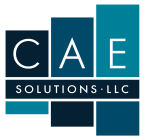Did that title get your attention? Who doesn’t want to save time, energy, and money, especially post-COVID? Does anyone like wasting resources? I don’t mean spending them on good faith efforts that may not work, I mean using them on things about which you don’t even have a conjecture about the outcome. Here are some ways to reduce waste and improve efficiency.
Is a decision necessary?
Most business books, articles, and teachers describe a well-known decision-making process: identify the problem, generate options and criteria, evaluate the options, choose, implement and measure. Peter Drucker suggested a “step zero”, if you will, of asking, “is a decision even needed?” Before we run in to solve the problem and save the day reactively, we should check to see if the problem even can be solved, needs to be solved, or may self-correct given time. All of these prevent dedicating scarce resources to an unnecessary effort.
The Surgeon’s Rules
How does a surgeon know when to perform surgery? Three rules:
- The condition likely to correct itself: do not perform surgery; put it on watch and re-evaluate, as needed
- The life-threatening condition: perform surgery; the risk is worth the reward if the downside is a foregone conclusion otherwise
- The condition in between: weigh risk vs. reward; if the risk of adverse consequences of surgery is greater try something less invasive first, but if the reward is greater perform surgery
We can easily adapt this to busines decisions. The key is making the right decision in condition three, which requires attention and presence…

Pause
If you haven’t noticed, life moves pretty fast. This is great for the part of us that loves “new”, but terrible for decision making. Speed rushes decisions that might be made differently (or not at all…see above!). How do you slow down? The most successful habit formation comes from establishing rules or identities. Create a personal rule to pause. In my classes, I include a statement in the syllabus that students must wait 24 hours before discussing assignment and exam-related grade questions with me. This gives them time to pause, review their notes, discuss their thinking and results with other students, and remove the reactionary element.
We need this rule in our businesses. Most decisions are not “building on fire”, and what to do with those is pretty clear anyway. Make and communicate to your team a rule that you all pause and reflect before making final decisions. This small change has a huge impact on being proactive vs. reactive.
Three simple tips to reduce resource waste: determine if you need to take any action, follow the surgeons, and take a pause as standard operating procedure. Apply one of these this week and see if you can save some resources.
Need help increasing your efficiency? Contact us today to discuss your opportunities.
Want these blog posts delivered straight to your inbox each week? Click here to subscribe.
Follow us on social media at the links below.




